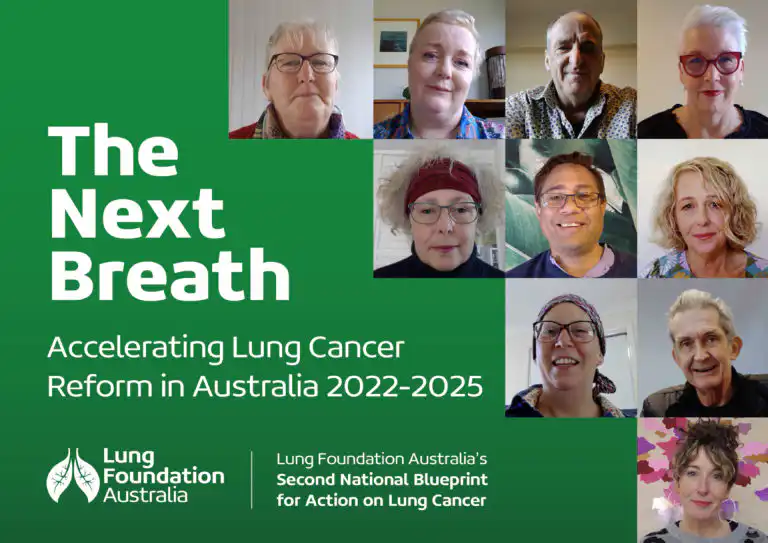The Blueprint highlights critical issues in lung cancer that require government investment and coordinated national action. It aims to transform lung cancer care and save lives through a comprehensive framework. The report outlines six key recommendations for lung cancer reform. These include Lung Cancer Prevention and Risk Reduction, Lung Cancer Screening, Specialist Lung Cancer Nurses, Comprehensive Genomic Profiling, Lung Cancer Survivorship, and a Clinical Quality Registry.
Lung Cancer Prevention and Risk Reduction: This recommendation focuses on reducing the incidence of lung cancer through public health initiatives, such as anti-smoking campaigns and policies to reduce exposure to known carcinogens. Education and awareness programs are essential to inform the public about the risks and preventive measures.
Lung Cancer Screening: Early detection is crucial for improving lung cancer outcomes. The Blueprint advocates for the implementation of a national lung cancer screening program, targeting high-risk populations. Regular screening can lead to earlier diagnosis, which is associated with better survival rates.
Specialist Lung Cancer Nurses: The report emphasizes the need for specialist lung cancer nurses who can provide dedicated support to patients throughout their cancer journey. These nurses play a vital role in coordinating care, offering emotional support, and ensuring patients have access to necessary resources.
Comprehensive Genomic Profiling: Advances in genomic profiling have the potential to revolutionize lung cancer treatment. By analyzing the genetic makeup of tumors, healthcare providers can tailor treatments to the individual characteristics of each patient’s cancer, leading to more effective and personalized care.
Lung Cancer Survivorship: Addressing the long-term needs of lung cancer survivors is essential. The Blueprint calls for the development of survivorship programs that focus on the physical, emotional, and social challenges faced by survivors. These programs aim to improve the quality of life and provide ongoing support.
Clinical Quality Registry: Establishing a national clinical quality registry for lung cancer will enable the collection and analysis of data on patient outcomes, treatment effectiveness, and quality of care. This information is critical for identifying areas for improvement and driving evidence-based policy decisions.
Lung cancer remains a significant unmet need in Australia. The Blueprint emphasizes the necessity for investment and coordinated action to drive positive change and improve outcomes for Australians with lung cancer, their carers, and families. It particularly focuses on those disproportionately affected, including Aboriginal and Torres Strait Islander people and those in rural, regional, and remote communities.
The lung cancer community is committed to changing the narrative of lung cancer, aiming to transform it from a fatal condition to a treatable one. The recommendations build on Australia’s strong foundations and past successes, moving towards a new era of lung cancer care and survival. The Blueprint is a collective effort by the Australian lung cancer community, developed through extensive consultation with experts and the lung cancer community. It responds to evidence of unmet needs and potential impacts.
Lung Foundation Australia acknowledges the contributions of individuals and organizations, especially the Australian men and women with lung cancer, their families, and carers, whose lived experiences have shaped this report and paved the way for improved lung cancer outcomes. For more information about lung cancer, visit our website.
For support and access to our Lung Cancer Specialist Nurse, contact our Information and Support Centre on 1800 654 301. This resource aims to provide you with the knowledge and support needed to manage your lung cancer journey effectively.
Was this page helpful?
Good job! Please give your positive feedback
How could we improve this post? Please Help us.
